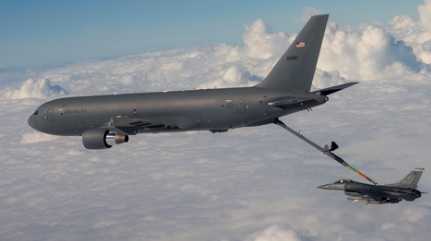
10 April 2022; MEMO: The Saudi-led coalition in the ongoing war in Yemen has an outstanding payment to the US for the sum of $17 million. The debt remains unpaid more than three years after the US stopped some air support for the coalition.
According to a report yesterday by AirForce Times, since the start of the military intervention in March 2015 to November 2018, the Pentagon spent about $300 million in carrying out aerial refuelling missions. Coalition partners Saudi Arabia and the UAE are thought to have covered most if not all of the financial burden between them.
Approximately $261 million was spent covering the hourly costs of flying KC-135 Stratotanker and KC-10 Extender tanker planes, with another $38 million allocated to jet fuel expenses.
In January of last year, the Saudis paid off the debt for flying-hour costs, by transferring $6.3 million to US Central Command. The kingdom had already paid $157 million in hourly fees while the UAE have reportedly paid for about $104 million in flying hour costs.
Between 2015 and 2016, the UAE also reimbursed $15 million for US-provided fuel. However, Riyadh still needed to pay back $23 million for fuel on behalf of the coalition. By July 2021, this balance was reduced to $17.2 million, however the Pentagon stated in November it had stopped receiving payments since the summer, but "are continuing to seek repayment from the … Ministry of Defence for the remaining fuel debt."
In addition to providing fuel, the US military has also provided intelligence and logistical support for the Saudi-led coalition. In 2018, the Pentagon said it had ended air refuelling as the kingdom no longer required support and Congress also passed legislation barring US involvement in Yemen, which has resulted in the world's worst humanitarian crisis, according to the UN.
Former president Donald Trump vetoed the proposal in 2019. This was followed by President Joe Biden formally ending US support for offensive operations in Yemen in February 2021, relations between Riyadh and the Biden administration are currently strained over rising energy prices, the Ukraine crisis and demands by the coalition for Yemen's Houthi movement to be re-added to the US foreign terrorist organisation list.




